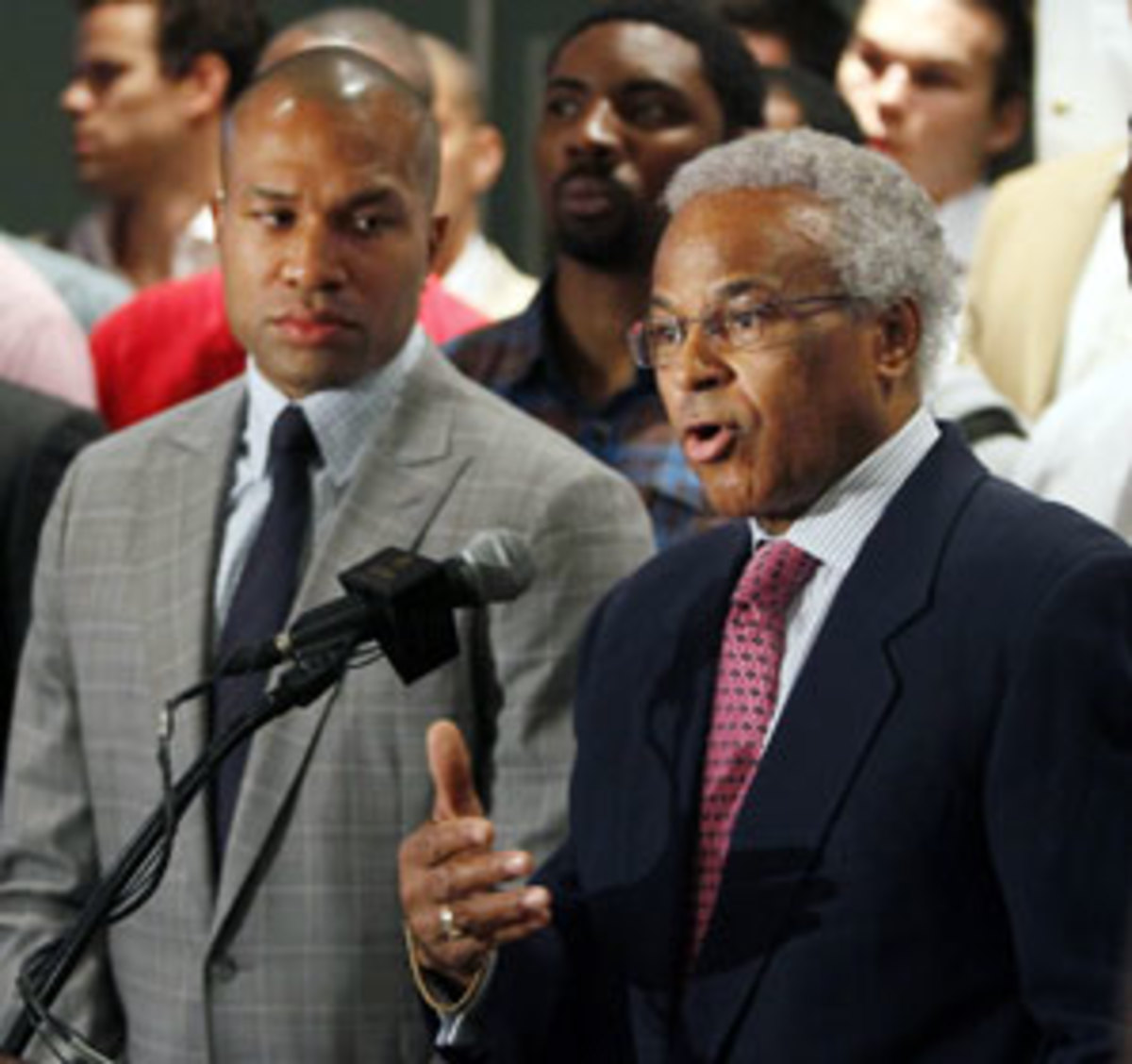Hunter-Fisher rift -- real or not -- comes at worst time for union
Well, sort of.
If we've learned anything from the Fisher-Hunter saga, it's that two heads aren't always better than one. These two were supposed to lead this labor fight together, the smart and stately old point guard with the five championship rings and the 68-year-old lawyer with experience in these sort of back-alley labor brawls. Yet, leading up to Thursday's meeting with the NBPA's executive committee in New York, they stood apart on the issue that mattered most and created an unwelcome fork in the road that could determine the final outcome of these negotiations.
It's not quite as salacious as some might lead you to believe, but it is substantive: While Hunter made his stance known on Friday when he said the players would never accept less than 52-percent split of basketball-related income under any circumstances (and in doing so surprised even his own people), Fisher is open to considering a share that pays the players between 50 percent and the 52 percent depending on the outcome of the unresolved system issues. As one union source said Tuesday, "There's been disagreement about how to negotiate or what moves to make, but there's no fatal disagreement here."
With the NBA already lobbying subtle threats that its 50-50 deal won't be on the table for long, the players' window for doing a deal that even remotely resembles the ones they have discussed is rapidly closing. Sources close to the situation all said that Thursday will be key in deciding which direction the union takes these talks, meaning the fate of the NBA season might rest largely on the union's ability to clean up this mess faster than a Fisher turnaround jumper (that's less than0.4 seconds, for anyone who forgot).
If the eight other players on the executive committee follow Fisher and set a tone for their colleagues who are growing more impatient by the day, then some hope will remain that a meeting with the owners could take place in the coming days and a deal could still get done before their offer gets even worse. If Hunter's hard line remains the same and the players choose that route, then the odds are markedly lower of a resolution coming anytime soon.
As for the more serious claim that Fisher was acting alone with the league for his own self benefit, he has vehemently denied publicly and privately that -- as was reported by FoxSports.com -- he ever met privately with NBA commissioner David Stern or discussed any side deals to push a 50-50 deal. In an e-mail sent to players Fisher on Monday, he wrote that "the attempt by 'sources' to divide us will be unsuccessful." In an e-mail that was sent to media on Tuesday night, he called the accusation "disgusting" and said he planned on suing the author of the article for defamation.
But there's still something to the reported friction between Hunter and Fisher. As The New York Times' Howard Beck detailed Thursday, there are differences in style between them that have created tension. Now add in the subplot of why sources believe the in-fighting came out in the media, and that's where things get even more interesting and the spotlight rightfully turns to Hunter.
Sources close to the union say a man who was recently added to the payroll by Hunter, p.r. consultant/former ESPN editor and writer David Cummings, is taking major heat for being largely responsible for the Jason Whitlock piece (though he has adamantly denied it). It was the second Whitlock story in less than three weeks that painted Hunter as the saint and Fisher as the sinner, and the suspicion surrounding Cummings arose largely because both stories surfaced in the short time he had been on board.
While Hunter has since denied a rift in an interview with SportsBusiness Journal and in a letter to the players, the reality is that he hired Cummings. Perception is a powerful thing, of course, so those dots were being connected and this detective work was being done during the most crucial time yet in these negotiations. None of which might matter after today.
When the executive committee concludes, we are likely to see yet another show of unity and talk of internal harmony. The Hunter-Fisher component will be tabled, hopefully in exchange for a return to bargaining table soon. After all, that's where the rift that matters most resides.





